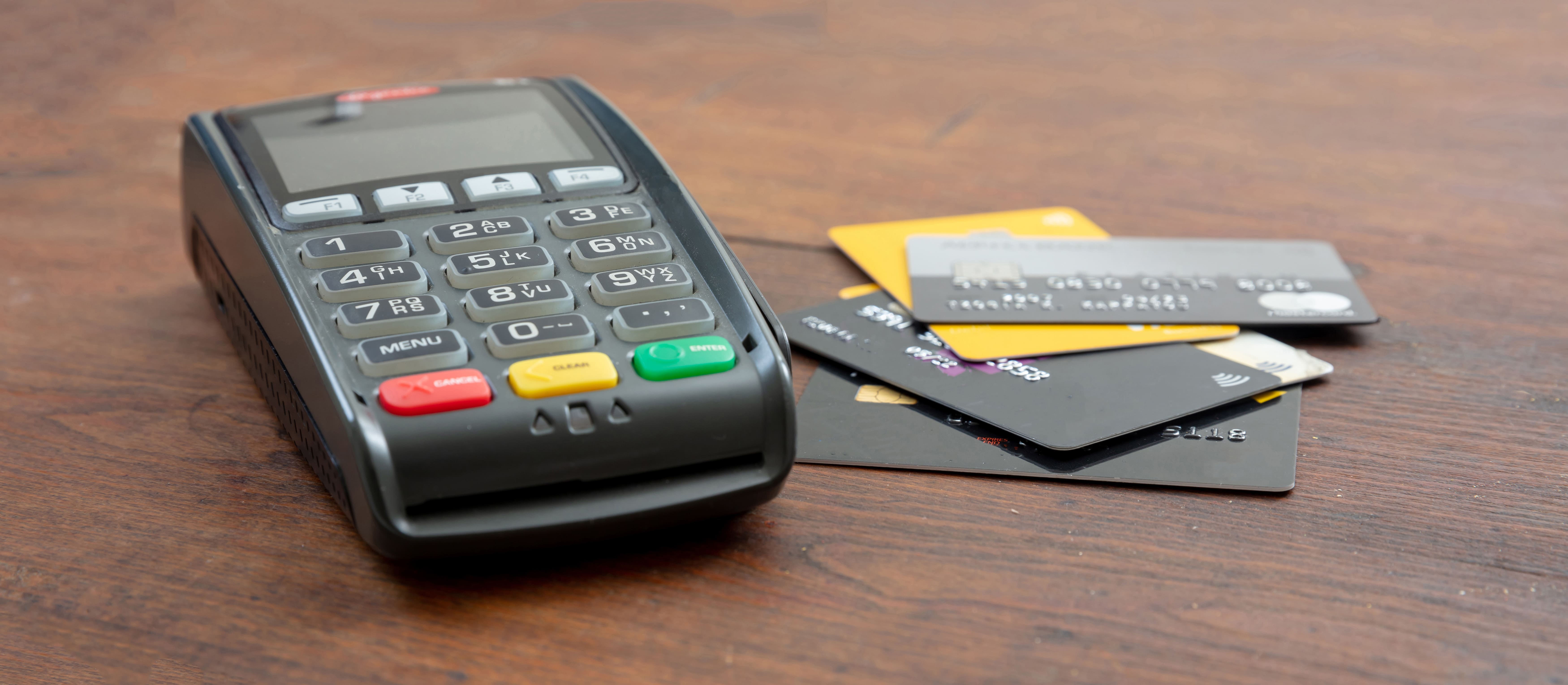The shift to digital payments has transformed how landlords collect rent and how tenants pay. While the convenience of online transactions is undeniable, questions about security often arise, especially concerning eChecks. Both landlords and tenants want assurance that their financial information is protected and that transactions are reliable.
This article explores the safety of eChecks (also known as ACH payments) for online rent collection. We will delve into their security features, potential risks, and crucial best practices for both landlords and tenants. Understanding these aspects empowers you to make informed decisions for secure and efficient rental transactions.
Key takeaways
- eChecks generally offer higher security than paper checks due to encryption and the ACH network.
- Common risks include insufficient funds, account hijacking, and data breaches.
- Landlords benefit from streamlined record-keeping and automated rent collection.
- Tenants appreciate the convenience of scheduled payments and digital histories.
- Both parties must follow best practices, like using reputable platforms and monitoring transactions, for optimal safety.
Understanding eChecks (ACH payments)
eChecks are electronic versions of paper checks, facilitating fund transfers directly between bank accounts. They operate through the Automated Clearing House (ACH) network, a secure electronic funds transfer system in the United States. This system processes a high volume of credit and debit transactions.
When a tenant pays rent via eCheck, they authorize a payment from their bank account to the landlord's. The tenant typically provides their bank account number and ACH routing number through a secure payment portal. This information is then used to initiate an ACH debit.
The ACH network acts as a central clearing facility, batching and processing these transactions. Funds generally transfer within 3-5 business days, though some platforms offer faster processing. This digital process eliminates many of the physical vulnerabilities associated with paper checks.
eChecks vs. traditional & other digital payment methods: A security comparison
Evaluating eCheck safety requires comparing them to other common rent payment methods. Each option presents distinct security features, processing times, and cost implications for both landlords and tenants. Understanding these differences helps you choose the most secure and efficient method for your rental property.
Paper checks
Paper checks, while offering a physical paper trail, carry significant security risks. They are susceptible to loss, theft, and forgery, and sensitive banking information is visible on the check itself. Landlords also face risks like bounced checks due to insufficient funds, causing delays and fees. You can explore the differences in detail when considering ACH vs check.
Credit cards
Credit cards offer strong consumer protections, including fraud monitoring and chargeback options for tenants. However, landlords often incur significant processing fees, typically 2-3% per transaction, which can impact profitability. While convenient, the storage of card data online also presents a risk of data breaches.
Wire transfers
Wire transfers are fast, often processed within one business day for domestic transfers. However, they are irreversible once sent, making them a high-risk target for scams and fraud. Their high cost, typically $15-$50+ per transfer, also makes them impractical for regular rent payments.
Peer-to-Peer (P2P) apps (Venmo, Zelle)
P2P apps like Venmo and Zelle are highly convenient for instant, mobile payments. However, they often lack robust fraud protection for large transactions like rent. Many apps are designed for casual transfers between friends and family, with limited recourse for unauthorized or fraudulent payments in a landlord-tenant context.
Key security features protecting eChecks
eChecks benefit from several inherent security features that make them generally safer than many traditional methods. These measures are designed to protect sensitive financial information during transit and processing. Understanding these safeguards can alleviate concerns about the dangers of eCheck.
Data transferred via eCheck is protected by robust encryption protocols. This scrambles your financial information, making it unreadable to unauthorized parties. The secure ACH network further ensures that data moves through a trusted and controlled environment.
Reputable online payment platforms, like Baselane, employ multi-factor authentication (MFA) and other authentication measures. This means users must verify their identity through more than one method, such as a password and a code sent to their phone. Platforms may also offer features like dual authorization for added security on transactions.
Many services also include sophisticated fraud detection and monitoring systems. These systems continuously analyze transactions for suspicious patterns, flagging and potentially blocking fraudulent attempts. Account validation processes ensure that funds are being transferred to and from legitimate bank accounts.
Risks and challenges of using eChecks for rent
Despite their security advantages, eChecks are not entirely without risks. Both landlords and tenants should be aware of these potential challenges to mitigate them effectively. Knowing the dangers of eCheck helps in proactive risk management.
One common challenge for landlords is dealing with insufficient funds, leading to bounced eChecks. This can result in payment delays, additional bank fees for both parties, and administrative hassle. Landlords must have clear policies on bounced payments and associated charges.
Account hijacking and phishing scams pose a significant threat. Cybercriminals attempt to gain access to banking credentials through deceptive emails or fake websites. Once compromised, accounts can be used to initiate unauthorized eCheck payments.
Data breaches are another risk, though typically associated with the platforms storing the information rather than the eCheck process itself. If a payment platform's security is compromised, sensitive banking details could be exposed. Choosing platforms with strong security infrastructure is crucial.
Lastly, processing delays and errors can occur, although less frequently than with paper checks. These issues can stem from incorrect banking information, bank holidays, or technical glitches. Prompt communication and verification can help resolve these.
Landlord best practices for secure eCheck rent collection
For landlords, securing eCheck rent collection involves choosing the right tools and implementing diligent practices. In 2024, 79% of organizations were victims of payment fraud attempts, highlighting the need for vigilance. Taking proactive steps can significantly reduce your vulnerability.
Always use reputable property management rent collection software or banking platforms designed for landlords. These platforms, like Baselane, incorporate advanced security features, encryption, and fraud detection. They also provide the necessary infrastructure for automated rent collection.
Verify tenant identity and banking details meticulously before accepting eCheck payments. This can involve cross-referencing information on rental applications with bank statements or other identification. This helps prevent fraudulent payments and reduces the risk of bounced checks.
Implement dual authorization for large or critical transactions, especially if you have multiple individuals managing your finances. This requires two approvals for a payment to be processed, adding an extra layer of security. Regularly monitor all transactions and bank accounts for any unauthorized or suspicious activity.
Educate your tenants about your secure payment practices and warn them about common rental scams. This shared awareness creates a safer environment for both parties. Emphasize that you will never ask for banking details via insecure channels like unencrypted email or text messages.
Securely manage your rental funds by separating personal and business finances using a dedicated landlord bank account. Baselane allows you to create multiple bank accounts good or bad for each property or purpose, simplifying the process of setting up multiple bank accounts for rentals. This also helps manage various income streams and expenses, including multiple security deposits. Utilizing a bank account with multiple sub accounts or a bank account with multiple cards can further enhance organizational security.
Tenant best practices for secure eCheck payments
Tenants also play a crucial role in ensuring the safety of eCheck payments. Being informed and cautious can protect your financial information from scams and fraud. Rental scams reached 43% of renters in 2025, underscoring the importance of vigilance.
Always verify the legitimacy of your landlord and the payment portal they instruct you to use. Ensure you are accessing an official, secure website and not a phishing site designed to steal your information. If anything seems suspicious, contact your landlord directly through a verified channel.
Use only secure, official payment channels provided by your landlord or their trusted platform. Avoid making payments through unofficial links or direct emails. Be wary of requests to use uncommon payment methods.
Never share your banking information, including your account and routing numbers, via insecure means such as email or text messages. Reputable platforms will have secure forms for entering this data. Treat your banking details with the same care as your credit card numbers.
Regularly monitor your bank statements for any unauthorized activity after making an eCheck payment. If you spot anything suspicious, report it to your bank and landlord immediately. This proactive monitoring is a strong defense against fraud.
Be aware of common rental scams, such as requests for payment before a lease is signed or for a property you haven't seen. Fraudulent rental applications doubled from 15% to 29% during COVID-19, demonstrating increased online fraud risks. Understanding ACH receivables from a tenant's perspective can also help in tracking incoming payments.
Regulatory safeguards and consumer protections
The safety of eChecks is further bolstered by regulatory frameworks and industry standards. These rules provide a layer of protection for both landlords and tenants, ensuring a more secure environment for electronic fund transfers. Understanding these safeguards is essential for safe echeck web services.
The National Automated Clearing House Association (NACHA) sets the operating rules for the ACH network. These rules mandate strict security protocols, data protection standards, and dispute resolution processes for all ACH participants. Compliance with NACHA rules is essential for financial institutions and payment processors.
Federal Reserve Regulation E (Reg E) provides consumer protection for electronic fund transfers, including eChecks. It outlines consumer rights regarding unauthorized transactions, error resolution procedures, and disclosure requirements. This regulation ensures consumers have recourse if something goes wrong with an eCheck payment.
Additionally, state-specific landlord-tenant laws may provide further protections regarding rent payments and financial transactions. Both landlords and tenants should familiarize themselves with local regulations. These laws can dictate how landlords manage security deposits and handle late rent payments, for example.
Benefits of eChecks for landlords beyond security
Beyond enhanced security, eChecks offer significant operational advantages for landlords, streamlining financial management. These benefits contribute to greater efficiency and potentially higher profitability. eChecks can help you manage many aspects of your business, from ACH payables to rent collection.
eChecks dramatically reduce the time and cost associated with traditional rent collection methods. There's no need to handle physical checks, make bank deposits, or chase down late payments manually. This automation frees up valuable time for landlords, as the average investor saves 150 hours per year using Baselane for rent collection and bookkeeping.
The digital nature of eChecks leads to streamlined record-keeping and financial management. All transactions are electronically recorded, creating a clear audit trail for tax purposes and financial analysis. Platforms like Baselane integrate these transactions directly into bookkeeping, helping with tools like property tax management software, HOA accounting software, or specialized best accounting software for real estate flippers.
Many platforms offer automated rent collection and flexible rent collection options via eCheck. This includes automated invoicing, reminders, and late fee application. Landlords can even accept email rent through secure portals, providing greater convenience and reliability for their rent payment system. This reduces busywork and ensures more consistent cash flow.
Benefits of eChecks for tenants beyond security
eChecks also provide numerous advantages for tenants, offering convenience and control over their rent payments. These benefits contribute to a smoother and less stressful rental experience. For tenants, eChecks provide an excellent way to send ACH payment online.
The primary benefit is the convenience and automation of payments. Tenants can set up recurring eCheck payments, ensuring rent is paid on time without the need to remember due dates or mail checks. This automation simplifies financial management for the tenant.
Automated eCheck payments help tenants avoid late fees, which can accumulate quickly and impact their budget. By scheduling payments in advance, tenants can rest assured their rent will be processed by the due date. This reduces financial stress and improves the landlord-tenant relationship.
eChecks provide a clear, digital payment history that can be easily accessed through bank statements or landlord portals. This digital record serves as proof of payment and can be useful for budgeting or resolving any disputes. Managing various deposits, like multiple security deposits, is also easier with clear digital records.
Some platforms offer the potential for split rent payments app functionality with eChecks, which can be beneficial for roommates. This allows multiple tenants to pay their individual portions of rent digitally and seamlessly. The convenience of Flexible Rent Collection benefits tenants by providing more payment options.
Make decisions about online rent payments
When asking, "Are eChecks safe to use online for landlords and tenants?" the answer is generally yes, especially when proper precautions are in place. eChecks offer a secure, efficient, and cost-effective alternative to traditional paper checks, benefiting from encryption, the robust ACH network, and regulatory oversight. However, like any online transaction method, they are not entirely without risk.
Both landlords and tenants share the responsibility of ensuring secure eCheck transactions. Landlords should leverage reputable rent collection platforms like Baselane, which provide integrated banking, bookkeeping, and automated rent collection features with robust security measures. Tenants must remain vigilant against scams and use only official, secure payment channels.
By understanding the inherent security features, being aware of potential risks, and diligently applying best practices, landlords can streamline their operations and tenants can enjoy convenient, secure payments. Choose secure platforms, monitor your accounts, and stay informed to maximize the safety and efficiency of your online rent payments. Explore Baselane's solutions to simplify your rental property finances and take back control of your time and money.
FAQs
What is an eCheck, and how does it work for rent payments?
An eCheck is an electronic payment that withdraws funds directly from a tenant's bank account to a landlord's account via the ACH network. The tenant provides bank account and routing numbers through a secure portal, authorizing the electronic transfer. Funds typically clear within 3-5 business days.
Are eCheck payments safe compared to paper checks?
Yes, eCheck payments are generally safer than paper checks because they use encryption and are processed through the secure ACH network. This reduces risks like physical loss, theft, and forgery, which are common with paper checks. Digital records also offer better tracking and audit trails.
What are the main dangers of eChecks for landlords?
The primary dangers for landlords include bounced payments due to insufficient funds and the risk of account hijacking through phishing scams. Data breaches on payment platforms can also expose sensitive information. Using secure platforms with fraud detection helps mitigate these risks.
How can tenants protect themselves when paying rent with eChecks?
Tenants can protect themselves by only using official, secure payment portals provided by their landlord and never sharing banking details via insecure channels like email. Regularly monitoring bank statements for unauthorized transactions and being aware of common rental scams are also crucial.
Does Baselane offer a secure eCheck collection?
Yes, Baselane provides secure, integrated solutions for rent collection, including automated eCheck (ACH) payments. Features like encrypted transactions, automated payment tracking, and integrated bookkeeping help landlords manage their finances safely and efficiently. This simplifies compliance and record-keeping for rental properties.
.jpg)
















